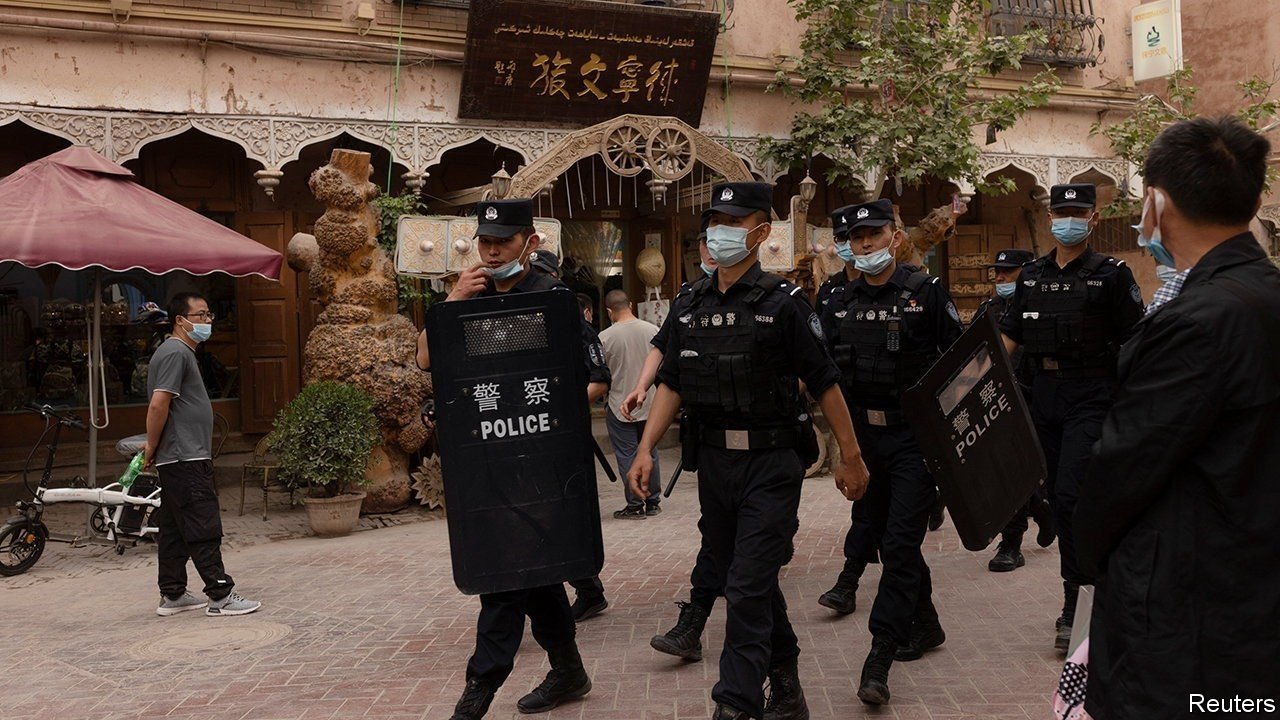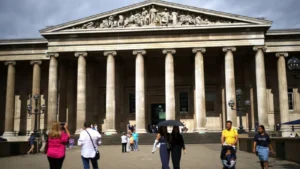
FIVE YEARS ago, few people in the West had heard of Uyghurs. Since then they have become a focus of international criticism of China, which is accused of committing grave human-rights abuses against the Uyghurs and other ethnic groups in the country’s far west. China’s actions in Xinjiang, where the majority of Uyghurs live, have prompted international sanctions, legal complaints and calls to boycott the 2022 Winter Olympics in Beijing. So who are the Uyghurs, and what is happening to them in Xinjiang?
The Economist Today Hand-picked stories, in your inbox A daily email with the best of our journalism Sign up
The Uyghurs are a predominantly Muslim ethnic group native to Xinjiang, where around 11.6m of them live. Culturally and linguistically, they are more similar to Central Asians than to China’s ethnic-Han majority. Uyghur is a Turkic language written in an Arabic script that has little in common with Chinese. Some Uyghurs reject the Chinese name “Xinjiang”, meaning “new territory” and reflecting imperial-era conquest, for their native region. They prefer to call it “East Turkestan”. In the first half of the 20th century two parts of the region, around the cities of Kashgar and Yining, declared independence from China. These attempts to break away failed, but they have not been forgotten by rulers in Beijing. Not all Uyghurs want independence, but the Chinese government views them with suspicion—all the more so since ethnic violence broke out in 2009 in Urumqi, the capital of Xinjiang, leaving a reported 197 Han and Uyghur people dead. In 2014 two violent attacks in Urumqi killed 34 people, fuelling the Communist Party’s fears about terrorism in the region.
Around the time of the attacks in 2014, the Chinese government launched a “strike hard” campaign against terrorist violence in Xinjiang. There were two main strands: boosting surveillance of Muslim residents, and building internment camps to “re-educate” Uyghurs and other minorities deemed to show too much devotion to Islam or their culture. Behaviour that can lead to someone being rounded up includes having contact with foreigners or relatives overseas, observing Islamic practices, growing a beard, or anything else that might suggest the expression of a Uyghur rather than Chinese identity. The UN estimates that more than 1m people have been sent to these camps. Around one in ten Uyghurs have at some point been interned in the camps. Among young and middle-aged men that rises to between a sixth and a third. According to former inmates and analysis of satellite imagery, prisoners are subjected to political indoctrination, forced labour, torture and forced female sterilisations. In 2019 the Chinese government said that it had released everyone from the camps, but satellite imagery has shown that camps were still being built in 2020.
Muslims in Xinjiang who are not interned face increased repression. In 2016 Xinjiang’s police began monitoring Uyghurs using a data-collection system known as the Integrated Joint Operations Platform. It uses information from a range of digital and analogue sources, including surveillance cameras, mobile phones and medical histories. Young Uyghur women are put under pressure by Communist Party officials to marry Han men. The government sends Han civilians and officials to stay in Uyghur homes to act as “kin”, ie, to spy. Uyghurs can be punished for contacting people in other countries. So their relatives abroad are often unaware of the sufferings of loved ones in their native land, including whether they have been detained in the gulag.
But they do know that life in Xinjiang has drastically changed. According to the Australian Strategic Policy Institute, a think-tank, 16,000 mosques in Xinjiang have been destroyed or damaged since 2017, around 65% of the total. Just over half of those have been demolished. The government now imposes Mandarin-only education in schools and tightly controls any religious expression. China denies any human-rights abuses and says these measures are needed to prevent extremism. It says there have been no terrorist incidents in Xinjiang since 2017 and cites this as evidence that its policies there are effective. Most other observers would say that China is threatening the very survival of Uyghurs’ culture and identity.






